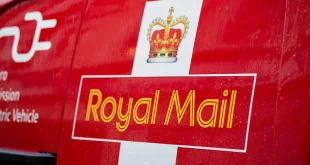This Conservative party manifesto promise was designed to combat almost non-existent electoral fraud.
In 2022, there were just 13 cases of personation recorded by police – and none led to prosecutions.
Thank heavens there aren’t more pressing issues for our parliamentary overlords to sink their legislative teeth into, eh?
Read Catherine’s column on this subject from February 2023
So, 12 months and six UK parliamentary by-elections later, what impact has this need to show our verified mugshot had on the democratic process?
Can we celebrate the administrative defeat of the negligible number of imposters? Or has this controversial law disenfranchised swathes of the previously legitimate electorate?
The Electoral Commission states that approximately 14,000 potential voters were refused a ballot paper at the May 2023 local elections in England because they could not show an accepted form of identification. T
his number does not include those who did not turn up at all, knowing they could not – or would not – comply.
Even Conservative dogmatist Jacob Rees-Mogg admitted, “[Those] who didn’t have ID were elderly and they, by and large, voted Conservative, so we made it hard for our own voters – and we upset a system that worked perfectly well.”
It was not only potential Tory supporters.
The Government’s own commissioned research found that those with severely limiting disabilities, the unemployed, people without qualifications, and those who had never voted before were all less likely to hold any form of photo identification.
Proponents will trumpet that if someone doesn’t have the required documents, then a Voter Authority Certificate can be obtained for free from the local council – if applied for sufficiently in advance of an election.
The way around the ID requirement was to apply for a postal vote, but this process too has been subsequently tweaked.
Unless ballots are delivered by the Royal Mail, every postal vote should be accompanied by a declaration form – and postal votes may be rejected if people don’t follow the rules.
“So what?” you might shrug, “Surely it’s easy to comply?” For you, maybe – but not for everyone.
And, once we are warmed up to the idea of showing photo ID to retain our democratic voice, then do you think this insidious need to prove our identity won’t be extended to other services? Because, let me tell you that it is already happening.
My mobile phone got deactivated this month, and the staff at the EE shop in Newport refused to sort out their issue unless I showed them one of only two forms of photo ID.
Returning slightly irked to the store with my passport, to acquire a four-quid-a-month SIM card, I had to not only hand over my precious document, but they insisted on scanning it – and also my incredulous face – to ensure that they matched before they would help me.
We are sleepwalking into a digital dystopia.
And I, for one, did not vote for this.


